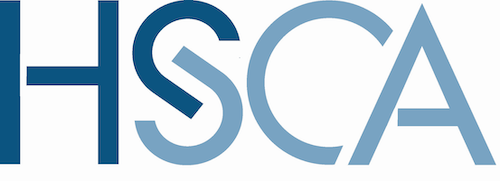
May 9, 2022 – The Healthcare Supply Chain Association (HSCA), which represents the nation’s leading healthcare group purchasing organizations (GPOs), today released an analysis of key learnings, best practices, and case studies of the role of GPOs in the response to the COVID-19 pandemic. The issue brief, “Healthcare Group Purchasing Organizations: Critical Partners in the COVID- 19 Response Effort,” highlights specific ways in which GPOs were able to shore up domestic manufacturing and help new suppliers come to market, communicate about anticipated demand surge to allow manufacturers to increase capacity, avert supply and drug shortages, and protect healthcare providers and patients from counterfeit or inferior medical products.
Specific findings and best practices about the ways in which GPOs helped healthcare stakeholders navigate the COVID-19 pandemic included:
- Demand Surge Notices Led to Increased Manufacturer Capacity. Communications from one GPO to manufacturers about anticipated demand surge resulted in expanded manufacturer capacity and an additional 17 million N95 respirators, 57.5 million isolation gowns, 2.1 million face shields, and 25.8 3-ply adjustable million cotton masks, among other products.
- Supply Chain Resiliency Programs Resulted in New Manufacturers Coming to Market. Multiple GPOs launched programs aimed at increasing supply chain resiliency and redundancy to prevent shortages of critical products. One GPO’s program resulted in the availability of an additional 676,000 units of the sedative propofol. Another GPO added 40+ new manufacturers of COVID-19 supplies, signed more than 100 new contracts, and evaluated supplies from more than 2,500 brokers.
- Vetting Prevented Fraudulent or Inferior Products from Getting to Caregivers and Patients. One GPO vetted thousands of leads and found that more than 90% were illegitimate. Another GPO vetted 2,400 new manufacturers to confirm registration with FDA and the National Institute for Occupational Safety and Health (NIOSH).
- Expanding to Non-Traditional Suppliers Helped Ensure Continuous Supply of Essential Products. By expanding partnerships beyond traditional healthcare vendors into non-traditional and adjacent industries, such as distilleries, textile manufacturers, steel and automobile manufacturers, and others, GPOs were able to help fill supply gaps for essential products such as hand sanitizer, face shields, isolation gowns, shoe coverings, surgical caps, and nasal swabs.
- Building Essential Medications Lists Helped Avert Drug Shortages. Multiple GPOs compiled and identified lists of essential medications whose absence would threaten the ability of hospitals to provide immediate and high-quality patient care and shared the lists with government authorities. One GPO identified 200 essential medications, including 77 acute and chronic life- saving drugs that have no alternatives in the event of a supply disruption.
